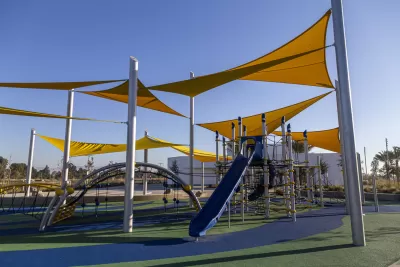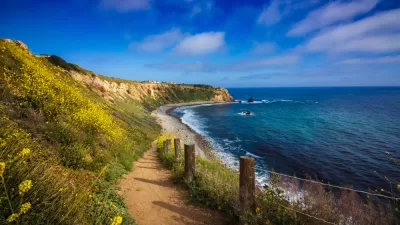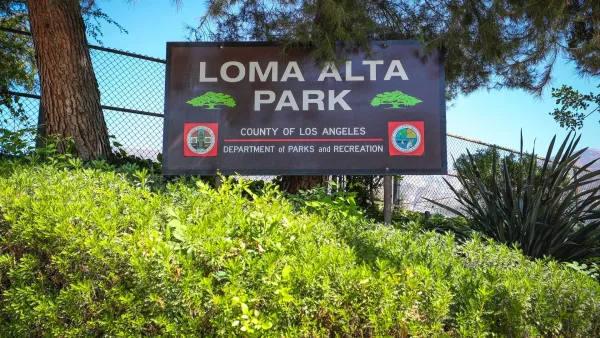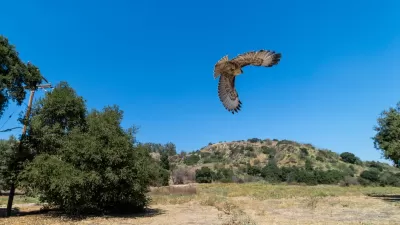Los Angeles County's popular and award-winning Parks After Dark program returns for the spring, providing opportunities for residents to come together in safe and welcoming spaces where they can access quality programming and a variety of services.

The Los Angeles County Department of Parks and Recreation (DPR) is once again offering evening events twice a week through mid-April as part of the Parks After Dark (PAD) program. PAD brings communities together to enjoy various activities at 34 parks across the county. The spring edition of the program runs from March 23 through April 15, with nighttime events happening every Thursday and Saturday from 6:00 to 9:00 p.m.
PAD started in 2010 at three County parks and expanded to thirty-three parks in 2019. For an eight-week period each summer, PAD extends hours of park operation from 6:00 to 9:00 pm at participating parks. The program offers family entertainment (like movies, concerts, arts and crafts, and free meals), sports and recreational activities (like swimming and dance), cultural and educational programming (like healthy cooking and financial literacy classes), and employment and volunteer opportunities for youth and adults. PAD parks also host resource fairs through which public agencies and community-based organizations provide health, social, economic, and legal resources to participants. Throughout all events, deputies from the Sheriff’s Department patrol and engage in activities alongside participants, which help to ensure safety and foster positive interactions between law enforcement and community members.
The program outcomes and benefits of PAD are well-documented. In an evaluation brief published in July 2018, researchers from the UCLA Center for Health Policy Research reported that:
- PAD programming like guided walking clubs, group exercise, team sports, and other physical activities helped to reduce costs for both the County of Los Angeles and the participants by reducing expenditures for treating chronic diseases. The report estimated savings of $1.1 million for 2017.
- PAD’s safety efforts prevented 41 violent crimes and almost 480 nonviolent crimes in neighborhoods near County parks between 2010 and 2017. The reduction in crime saved the County about $2.2 million in criminal justice costs in 2017 alone.
- New initiatives added to the program in 2017 provided participants with easier ways to access mental health services, as well as valuable gang intervention and other activities for at-risk youth and young adults. In 2017, PAD employed about 50 youth and young adults, including teens for whom the experience was their first job, and over 300 youth volunteered through the program.
- As in previous years, concerts and movie nights remained PAD’s most popular offerings.
To serve children and families during school breaks, DPR launched the first ever winter edition of PAD in December 2018 and a spring edition in March 2019 with free programs and events for all to enjoy. In addition to sports and movies, the winter PAD offered holiday-themed programming and snow days. The Spring PAD included fun activities like community gardening, color run/walks, paint nights, and silent dancing.
FULL STORY: L.A. County Parks after Dark program returns for spring

Planetizen Federal Action Tracker
A weekly monitor of how Trump’s orders and actions are impacting planners and planning in America.

The Simple Legislative Tool Transforming Vacant Downtowns
In California, Michigan and Georgia, an easy win is bringing dollars — and delight — back to city centers.

San Francisco's School District Spent $105M To Build Affordable Housing for Teachers — And That's Just the Beginning
SFUSD joins a growing list of school districts using their land holdings to address housing affordability challenges faced by their own employees.

In More Metros Than You’d Think, Suburbs are Now More Expensive Than the City
If you're moving to the burbs to save on square footage, data shows you should think again.

The States Losing Rural Delivery Rooms at an Alarming Pace
In some states, as few as 9% of rural hospitals still deliver babies. As a result, rising pre-term births, no adequate pre-term care and "harrowing" close calls are a growing reality.

The Small South Asian Republic Going all in on EVs
Thanks to one simple policy change less than five years ago, 65% of new cars in this Himalayan country are now electric.
Urban Design for Planners 1: Software Tools
This six-course series explores essential urban design concepts using open source software and equips planners with the tools they need to participate fully in the urban design process.
Planning for Universal Design
Learn the tools for implementing Universal Design in planning regulations.
Smith Gee Studio
City of Charlotte
City of Camden Redevelopment Agency
City of Astoria
Transportation Research & Education Center (TREC) at Portland State University
US High Speed Rail Association
City of Camden Redevelopment Agency
Municipality of Princeton (NJ)





























